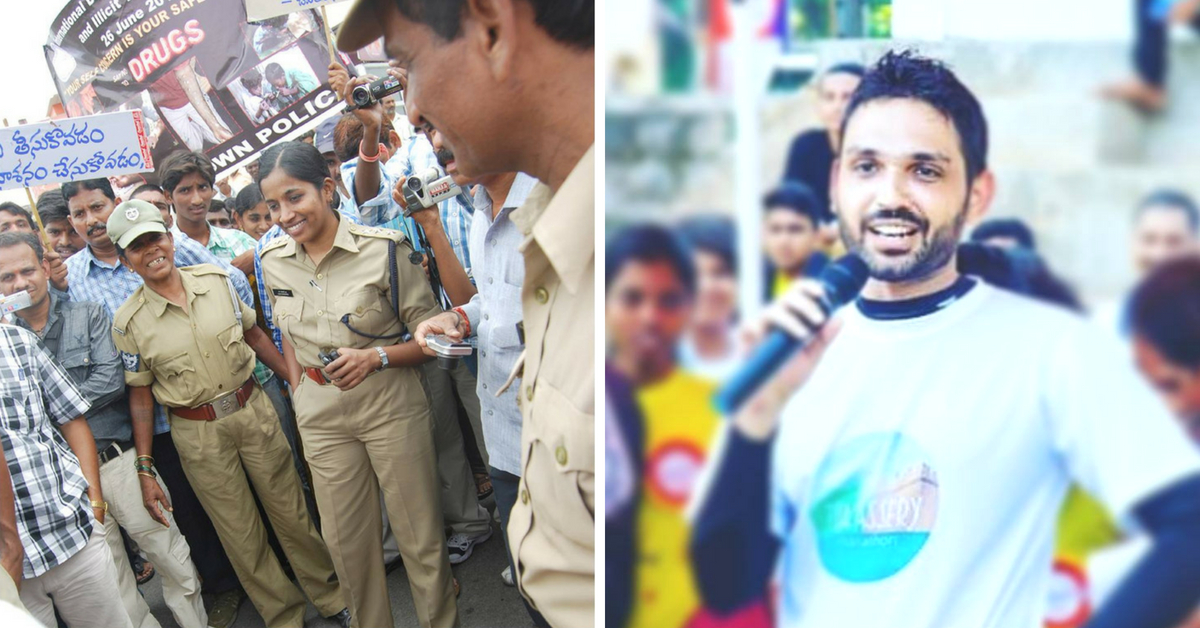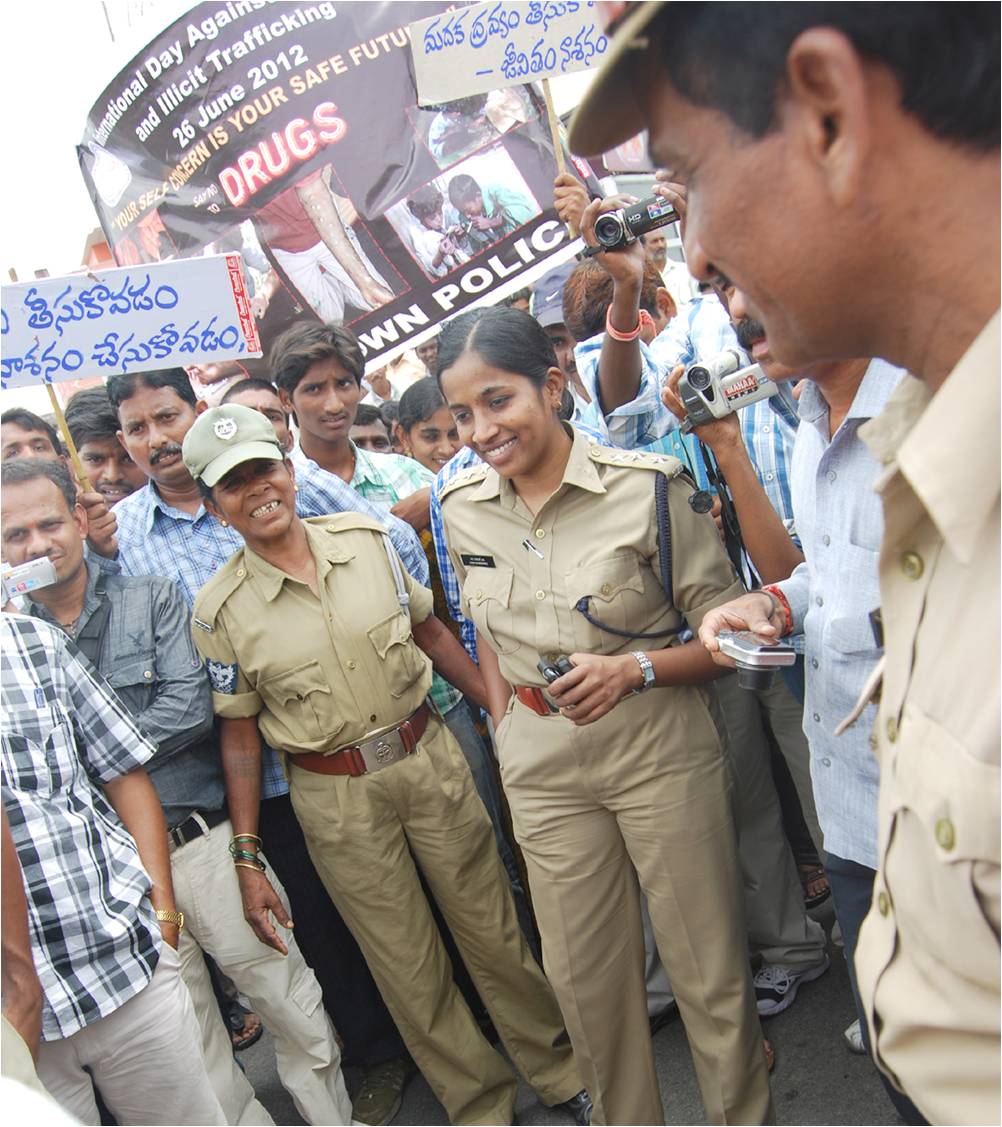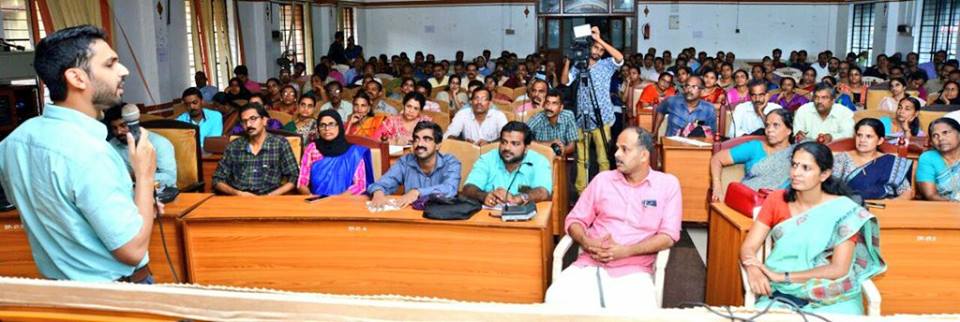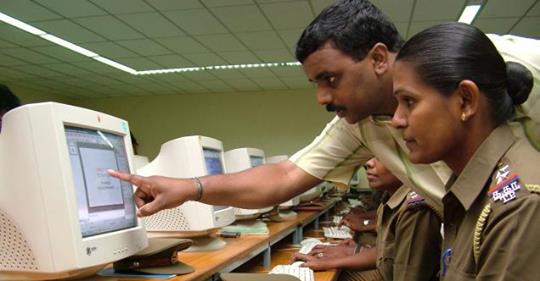When Public Servants Stand Up For You: 5 Ways They Are Battling Fake News
The menace of fake news disseminated on social media is real as evinced by recent instances of mob lynching. And these efforts are offering much-needed local antidotes to this dangerous phenomenon!

On Thursday, a hawker from Uttar Pradesh was lynched to death by a mob near Agartala in Tripura after rumours surfaced on social media that he was a ‘child-lifter’.
Earlier this month, two young men were lynched to death in the Karbi Anglong district of Assam after a WhatsApp message accusing them of being child traffickers went viral.
These two incidents prove that the scourge of fake news is real, and is killing people.
From the outset, one must note that social media platforms like Facebook, Twitter and WhatsApp aren’t the problem. They are just mediums of disseminating information, false or not. The problem lies in the action of people who don’t verify the news they receive through these mediums and then proceed to take the law into their own hands and lynch whoever they suspect.
Rumours spread on these social media platforms usually range from the presence of potential murderers or child kidnappers within a particular community, smear campaigns against certain politicians and news of a specific religious community suffering persecution, assisted with graphic images and videos.
India has long seen lynch mobs going on murder sprees based on unverified information for a long time. What do you think happens during communal riots?
Having said that, the advent of social media has indeed hastened the dissemination of false information. Fake news does pose one of the most significant challenges before India’s law enforcement apparatus. Fortunately, some public servants are battling the scourge of false news.
Here are five examples of public servants in India battling the scourge of fake news:
Rema Rajeshwari, Superintendent of Police of Jogulamba Gadwal district, Telangana
SP Rajeshwari’s efforts at extensive community outreach and maintenance of a dedicated district-level IT cell are seemingly paying rich dividends, as described in this article by The Better India. Reports indicate that there have been no fake news-related killings across 400 villages under her jurisdiction.
She has assigned villages to constables, who not only visit the village once a week, spreading awareness on critical social issues, but also develop networks with community leaders. SP Rajeshwari herself spoke to them, especially the village sarpanches on a variety of topics. What these local networks did is help the police nip WhatsApp rumours in the bud.

Before she kick-started an extensive community outreach campaign against the spread of fake news, local troupes performed in these villages, singing, preaching or enacting skits about the dangers of fake news.
Thanks to her efforts, sarpanches have added police personnel into their local WhatsApp groups, allowing them to monitor messages, and look out for rumours that could incite violence.
Mir Mohammed Ali, District Collector of Kannur, Kerala
A disconcerting feature of the recent Nipah virus outbreak in Kerala was the proliferation of rumours on social media, creating unnecessary panic among the state’s residents.
Responding to these fears, the District Collector of Kannur initiated a programme called Satyameva Jayate (truth alone triumphs) this month, in which teachers from 150 government schools in Kannur will teach students how to recognise fake news and rumours, deal with sensational news stories and how to break out of their “filter bubbles”. These teachers are currently undergoing training in this regard.

The objective of this programme, according to the administration, is to inculcate the spirit of Article 51 (A) (h) of the Constitution (develop the scientific temper, humanism and the spirit of inquiry and reform), in school kids.
In past few years, a spate of false information has afflicted the district. “One of the most common fake news I have to debunk in Kannur is that since it is raining heavily, the collector has declared a holiday. But in 2016, rumours of child kidnappers had led to people from Tamil Nadu, or simply people who looked unfamiliar, to be tied to posts and beaten up,” said Ali to The Indian Express.
Inspector Naga Mallu of Rachakanda Police in Cyberabad, Telangana
Inspector Naga Mallu is using the power of music to spread awareness to curb the menace of fake news and the panic that often follows. He sang and composed a song urging people to stop buying into rumours and fake news that appear on social media.
“With so much fake news going around on kidnapper gangs on the prowl and people resorting to the lynching of innocents, I came up with songs on WhatsApp to quell such rumours and how people are behaving hysterically and taking the lives of innocents,” he told the Times of India.
The power of music he believes lies in its ability to strongly resonate with people. He believes his song on fake news and its perils will make people realise how ignorance often lands them in trouble.
This isn’t the first time Inspector Mallu has composed and sung songs on social issues. He has performed songs on filling potholes, preventing over-speeding and enhancing the green cover.
Rajasthan Police tagging fact-checking news portals
State police units have their own dedicated IT cells that monitor content on social media. However, considering the chronic shortfall in the numbers of police personnel, it’s possible that they may not have the ability to conduct the necessary research and spot fake news.
What does an organisation do at such times?
In a positive development, the Rajasthan Police has started tagging stories by fact-checking website SM Hoax Slayer on its official Twitter account. The fact-checking portal runs a drive on Twitter highlighting fake news.
1/2 One of the commonest forms of #FakeNews is people using sensational videos and distorting its context. We had exposed one such fraudster @omshantiom1231 who had used a gory video from Brazil & claimed it to be from #Rajasthan.
With help of @SMHoaxSlayer, we found its origin. pic.twitter.com/CwsyWalnKr
— Rajasthan Police (@PoliceRajasthan) June 28, 2018
Despite highlighting the fact that isn’t collaborating with SM Hoax Slayer, the Rajasthan Police’s official Twitter handle took great pains to state that portals like SM Hoax Slayer were doing a great job and “all of us should come together to address this menace”.
Doubling up on their efforts at battling the menace of fake news, the Rajasthan Police has also started a series on fake news, posting videos on their official Twitter handle.
Starting a series on #FakeNews. Please follow these tiny yet significant tips.
What’s fake news? It is news, stories or hoaxes which mislead you into believing the facts which are not true. Often #SocialMedia become easy carriers for spreading falsehood & distortion@SMHoaxSlayer pic.twitter.com/m77DKYeCzN
— Rajasthan Police (@PoliceRajasthan) June 25, 2018
“Starting a series on fake news. Please follow these tiny yet significant tips. What’s fake news? It is news, a story or hoax which misleads you into believing the facts which are not true. Often social media becomes an easy carrier for spreading falsehood and distortion,” said the Rajasthan police in a video. Going further, the video urges users to check reliable sources, go beyond headlines and verify author and date of a particular news story before sharing it.
“Fake news is an online epidemic that poses a threat to people! DoYouKnow-Satire is a type of fake news where a piece of content which is intended to amuse readers is misinterpreted as fact. Thus, it’s essential to check news via multiple sources for its credibility”, said another Tweet.
Meghalaya Police cracking down on inflammatory social media posts
Following the recent clashes between the Khasi and Sikh communities in Shillong earlier this month, the Cyber Crime Wing of the Meghalaya Police has been working overtime to monitor social media posts that are “offensive, inflammatory and derogatory”.
“We don’t take action against all posts, but some posts are particularly communal and inciting”, said Superintendent of Police R Muthu of Meghalaya Police Criminal Investigation Department (CID), to The Indian Express.

Following the clashes, the police registered nine cases and arrested one person for posting inflammatory information. In a recent press release, the state police listed out potential punishment for those deliberately trying to incite communal violence.
“Such kind of posts are liable to legal action as per provisions of The Information Technology Act, 2000/The Information Technology (Amendment) Act, 2008 and Indian Penal Code,” the release said. The police have also got hold of those administering Facebook and WhatsApp groups and directed them to alert the police if they notice any suspicious post or activity.
(Edited by Gayatri Mishra)
Like this story? Or have something to share? Write to us: [email protected], or connect with us on Facebook and Twitter.
NEW: Click here to get positive news on WhatsApp!
If you found our stories insightful, informative, or even just enjoyable, we invite you to consider making a voluntary payment to support the work we do at The Better India. Your contribution helps us continue producing quality content that educates, inspires, and drives positive change.
Choose one of the payment options below for your contribution-
By paying for the stories you value, you directly contribute to sustaining our efforts focused on making a difference in the world. Together, let’s ensure that impactful stories continue to be told and shared, enriching lives and communities alike.
Thank you for your support. Here are some frequently asked questions you might find helpful to know why you are contributing?


This story made me
- 97
- 121
- 89
- 167











